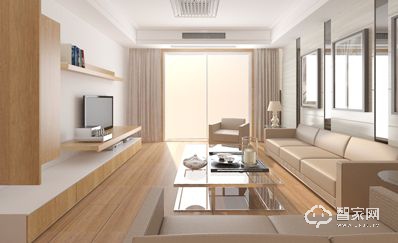With the advancement of science and technology and the development of the times, the concept of smart home has been given a new definition. At present, China's smart home is in its infancy, and the future has a broad space for development. In the future, interconnection, practical value, security performance, and data analysis will become more important elements of smart homes. People often have high hopes for smart homes. According to a GfK survey, nearly 60% of consumers believe that their lives will change dramatically in the coming years due to the application of smart home technologies. But what does this mean in the end? Today, our definition of smart home is: use one or more computers to control basic home functions, including automatic control and remote control functions. This is a more general definition. For example, when you walk to the front door, the computer automatically turns on the lights or plays your favorite music. Although these types of functions are very popular and interesting, technological advances have had a tremendous impact on people's lives. Therefore, we need to redefine the function of smart home so that we can use it with more IOT devices to provide more substantive services for the house. Let's take a look at some of the recent breakthroughs that have brought us closer to the true definition of smart homes. That is to bring real value and ability to change people's lives. Consumers want products to work. This is a constant fact, but today both users and products have changed. This means that these smart home devices must be able to effectively communicate with each other when they are connected to other devices. Otherwise, customers will choose other products. One of the first standards to address interoperability between different products is IFTTT ("if this, then that"), which can easily interconnect applications and smart products. For example, if it is almost raining and my window is still open, send a message to remind me to close the window. Recently, Nest has done a lot of efforts to expand its ecosystem. With the "Works with Nest" program, Nest has connected to many products, applications, and smart technologies through the API. IFTTT and Nest change the smart home connection by simplifying common tasks and automatic control and taking home control to a new level. In this area of ​​7*24 hours application requirements, any important convenience measures can greatly influence and improve the daily life of users. The intelligent transformation of a traditional device does not mean increasing its intrinsic value. For example, whether a $100 Bluetooth toaster or smart comb is valuable depends primarily on whether they can provide peace of mind to the owner. For example, when a leakage sensor detects a leak, it can promptly recommend a plumber who has a high evaluation ability to come to the homeowner by connecting a partner service. Although services such as maintenance and modification are of value to families, they must be connected with smart technologies to highlight or amplify their actual value. Therefore, in addition to convenience, smart devices and ancillary services can enable homeowners to take timely response measures, reduce property losses or save maintenance costs, minimize the probability of filing claims with insurance companies, and save money. Homeowners are very eager to know if their homes are safe and reliable, which also makes home safety the fastest growing segment of the smart home market. According to a survey released by PCMa, consumers believe that smart home security devices guard the safety of their homes. Even more than patrol police, traditional locks and alarms and neighborhood surveillance. With the continuous development of smart home technologies, our homes will become more secure. Nest Secure, SimpliSafe and AT&T Digital Life are just some advanced smart home security devices. In addition to protecting the things people care about most, family and property, smart security devices are also beginning to solve other home automation problems. Since the advent of smart phones, our world has been within reach. However, we always remember what happened at home. Is the window closed? How often does the smoke alarm go off? Is the toilet leaking? Smart voice cannot answer these questions. With smart homes, although all connections between devices and services are conducted in the background, data collected by smart devices can be shared with homeowners in real time so that they can make more accurate decisions in a timely manner. At the same time, it can also be used as an added value to provide data to insurance companies, so as to obtain more preferential insurance prices. The most important value of a smart home depends on the connectivity, data analysis, value-added services, and quality user experience of the device. When these are met, users can quickly solve problems or make life easier through smart connections and protect their most important things. At present, we have just started our smart home life and believe that there will be a very broad space for development in the future. With the development and popularization of smart technology, we will completely change our way of life and make our future life better. Power X (Qingdao) Energy Technology Co., Ltd. , https://www.solarpowerxx.com
interconnected
value
Safety
data
to sum up